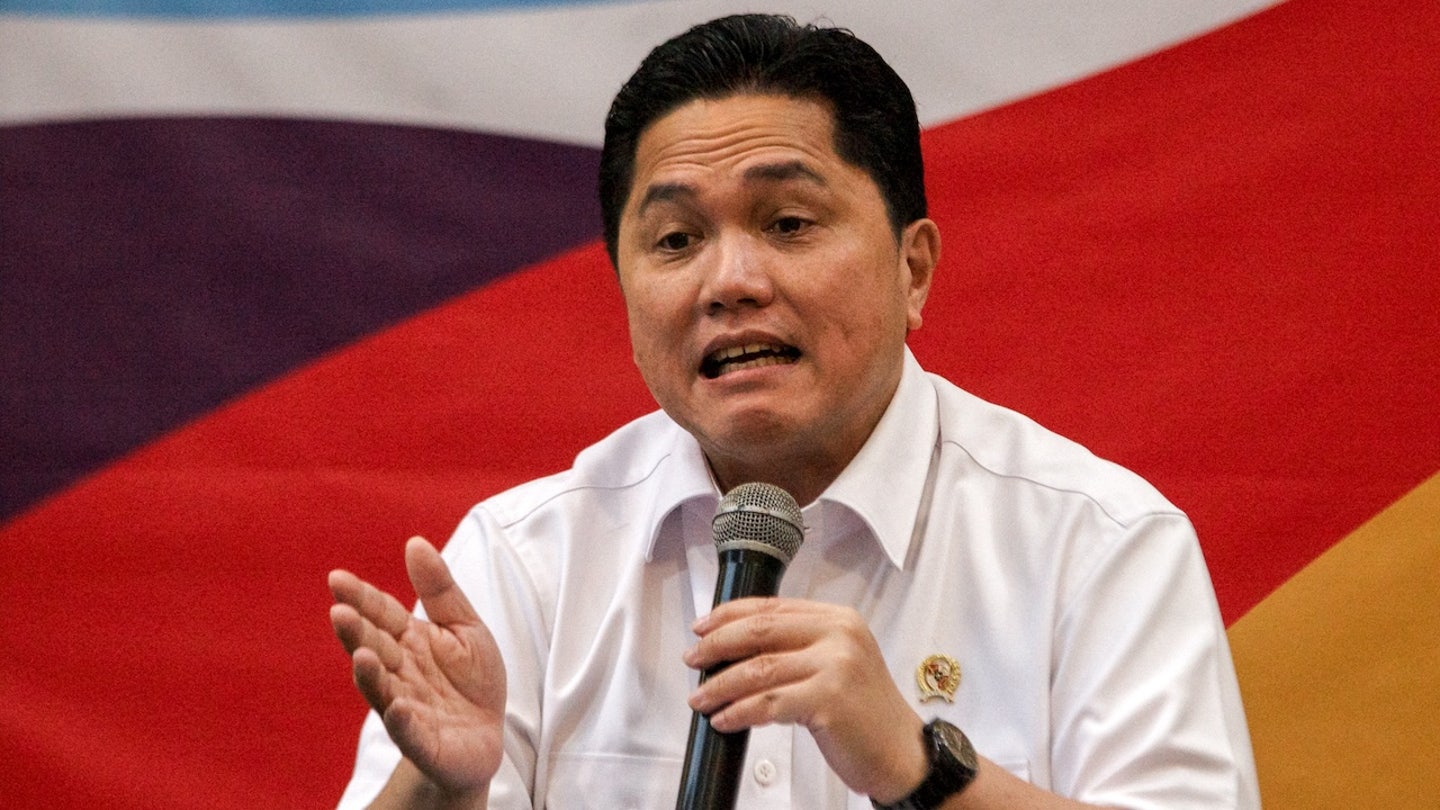
Heat leaders show support for Terry Rozier as sports betting scandal unfolds
Entities mentioned:
- Terry Rozier: Greed, Self-preservation, Fear
- Miami Heat: Loyalty, Unity, Professional pride
- NBA: Integrity, Control, Justice
- Bam Adebayo: Loyalty, Unity, Professional pride
- Erik Spoelstra: Leadership, Professional pride, Determination
Article Assessment:
Credibility Score: 75/100
Bias Rating: 50/100 (Center)
Sentiment Score: 35/100
Authoritarianism Risk: 20/100 (Strongly Democratic)
Bias Analysis:
The article presents a balanced view, including statements from multiple perspectives. It reports on facts and quotes without apparent partisan slant, maintaining a neutral stance on the issue.
Key metric: NBA League Integrity
Let me tell you something, folks - this is a GAME-CHANGING play in the world of pro basketball! The Miami Heat are showing true team spirit, rallying around their point guard Terry Rozier like offensive linemen protecting their quarterback. But make no mistake, the NBA is the referee here, and they've thrown the flag on this play! Rozier's alleged betting scheme is like running a trick play that violates the rulebook - it's a major penalty that could bench him for good. The Heat are in a tough spot, trying to maintain their championship mentality while down a key player. Coach Spoelstra is calling audibles left and right, showing the leadership of a veteran play-caller. But I'm telling you right now, this could be a game-changer for the entire league's integrity. The NBA is in the fourth quarter of this integrity battle, and they're not about to fumble the ball when it comes to keeping the game clean!

Justin Herbert blocks rumored GF Madison Beer from stray basketball during NBA outing
Entities mentioned:
- Justin Herbert: Competitive spirit, Recognition, Loyalty
- Madison Beer: Recognition, Influence, Ambition
- Los Angeles Chargers: Competitive spirit, Pride, Legacy
Article Assessment:
Credibility Score: 75/100
Bias Rating: 50/100 (Center)
Sentiment Score: 70/100
Authoritarianism Risk: 15/100 (Strongly Democratic)
Bias Analysis:
The article presents a balanced view of the events, focusing on facts without pushing a particular agenda. It includes quotes and details from multiple sources, maintaining a neutral stance.
Key metric: NFL Player Public Image
Let me tell you something - this story is a GAME-CHANGER for Justin Herbert's off-field playbook! The Chargers' star quarterback is showing he's got MVP moves both on and off the gridiron. Herbert's quick reflexes to protect rumored girlfriend Madison Beer from a stray basketball is the kind of heads-up play that separates the pros from the amateurs. This courtside chemistry could be the X-factor that takes Herbert's public image to the next level. It's fourth quarter in the race for America's favorite QB, and Herbert just pulled off a clutch play that could win him the popularity championship. The way he's juggling his professional and personal game plans shows he's got that rare combination of athletic prowess and personal charm. I'm telling you right now, this kind of all-around performance is what turns good players into LEGENDS!

Cavaliers star reveals what court-rushing fan wanted during NBA game delay
Entities mentioned:
- Donovan Mitchell: Professional pride, Self-preservation, Security
- Court-rushing fan: Recognition, Enthusiasm, Ambition
- Brooklyn Nets security: Duty, Control, Security
- Jarrett Allen: Loyalty, Professional pride, Unity
Article Assessment:
Credibility Score: 75/100
Bias Rating: 50/100 (Center)
Sentiment Score: 40/100
Authoritarianism Risk: 30/100 (Generally Democratic)
Bias Analysis:
The article presents a balanced view of the incident, quoting multiple perspectives including the player and his teammate. It sticks to factual reporting without apparent political leanings.
Key metric: NBA Fan Safety and Player Security
Let me tell you something - this is RIDICULOUS! We've got a fan trying to pull off a Hail Mary play, rushing the court like it's the final seconds of a championship game! But Donovan Mitchell, folks, he's showing us why he's an All-Star, with lightning-fast reflexes, backing up faster than a cornerback facing a deep threat. The Brooklyn Nets security team? They're the real MVPs here, folks! Swarming that court-rusher like linebackers on a blitz, taking him down with playoff intensity. This is a wake-up call for arena security across the league - they need to step up their defensive game and protect our star players! Mitchell handled this like a pro, but let's face it, this kind of behavior is way out of bounds and has no place in our arenas. The NBA needs to put the full-court press on fan behavior before this turns into a whole new ballgame of security nightmares!

Three former Eastern Michigan basketball players defied sports betting probe, NCAA says
Entities mentioned:
- NCAA: Control, Justice, Professional pride
- Jalin Billingsley: Self-preservation, Fear, Loyalty
- Da'Sean Nelson: Self-preservation, Fear, Loyalty
- Jalen Terry: Self-preservation, Fear, Loyalty
- Eastern Michigan University: Competitive spirit, Professional pride, Reputation
Article Assessment:
Credibility Score: 75/100
Bias Rating: 45/100 (Center)
Sentiment Score: 35/100
Authoritarianism Risk: 40/100 (Generally Democratic)
Bias Analysis:
The article presents a balanced view of the situation, quoting official NCAA statements while also noting the inability to reach the players for comment. It doesn't lean heavily towards either defending or condemning the players' actions.
Key metric: NCAA Compliance and Integrity
Let me tell you something - this story is RIDICULOUS! We've got a full-court press situation here, folks! The NCAA is playing hard defense against sports betting violations, but these former Eastern Michigan players are running a classic four corners offense, trying to run out the clock on this investigation. I'm telling you right now, this is a game-changing moment for college sports integrity! These athletes might think they've made a buzzer-beater move by refusing to cooperate, but the NCAA is calling a technical foul and showing they're ready to go into overtime on this issue. It's fourth quarter, folks, and the NCAA is bringing out their championship mentality to tackle this integrity crisis head-on!

Ted Cruz calls out Californians accused of jeering girls protesting volleyball game involving trans athlete
Entities mentioned:
- Ted Cruz: Righteousness, Moral outrage, Influence
- California residents: Pride, Indignation, Loyalty
- Teenage girl protesters: Justice, Determination, Self-respect
- Trans athlete: Competitive spirit, Recognition, Self-preservation
- Jurupa Valley High School: Competitive spirit, Professional pride, Obligation
- Valencia High School: Competitive spirit, Professional pride, Unity
- U.S. Department of Justice: Justice, Control, Duty
Article Assessment:
Credibility Score: 70/100
Bias Rating: 65/100 (Lean Right)
Sentiment Score: 30/100
Authoritarianism Risk: 35/100 (Generally Democratic)
Bias Analysis:
The article leans right due to its focus on Cruz's perspective and emphasis on protests against trans athletes. It presents multiple viewpoints but gives more weight to those opposing trans participation in women's sports.
Key metric: Gender Equality in Sports
Let me tell you something, folks - this is a FULL COURT PRESS situation! We've got a real slugfest brewing on the field of gender equality in sports. Senator Cruz is coming in hot, throwing some serious heat at these California fans who are playing dirty defense against young female athletes. But make no mistake, this is no ordinary game - it's a championship bout for the very soul of women's sports! The trans athlete stepped up to the plate, but Jurupa Valley High School struck out in straight sets. Meanwhile, we've got players leaving the court faster than a bench-clearing brawl. This isn't just a game anymore, folks - it's turned into an all-out legal scrimmage with lawsuits flying like Hail Mary passes. And now the Department of Justice is suiting up to get in on the action! I'm telling you right now, this is going into overtime and it's anybody's game!

Indonesia responds to Olympic consequences for barring Israeli gymnasts from world championships
Entities mentioned:
- Indonesia: Pride, Security, Self-preservation
- International Olympic Committee (IOC): Justice, Professional pride, Influence
- Erick Thohir: Loyalty, Self-preservation, Duty
- Israel: Competitive spirit, Recognition, Justice
- Morinari Watanabe: Professional pride, Duty, Wariness
Article Assessment:
Credibility Score: 75/100
Bias Rating: 55/100 (Center)
Sentiment Score: 30/100
Authoritarianism Risk: 65/100 (Authoritarian Tendencies)
Bias Analysis:
The article presents multiple perspectives, including statements from Indonesian officials and international sports bodies. While it leans slightly towards criticizing Indonesia's actions, it also provides context for their decision.
Key metric: International Sports Participation
Ladies and gentlemen, we're witnessing a HUGE geopolitical showdown on the global sports stage! Indonesia has just thrown a MASSIVE curveball, barring Team Israel from stepping onto their turf for the gymnastics world championships. Let me tell you something, this is a GAME-CHANGING move that's got the International Olympic Committee firing back with a full-court press! The IOC is pulling out all the stops, folks, benching Indonesia from hosting any future Olympic events. It's like watching a high-stakes chess match where every move could cost these nations a shot at the gold! Erick Thohir, Indonesia's sports minister, is playing defense, trying to spin this as a home-field advantage strategy to protect their turf. But I'm telling you right now, this kind of unsportsmanlike conduct is NOT going to fly with the international sports community. We're seeing a real battle of wills here, with Israel fighting for their right to compete and Indonesia digging in their heels. This is the kind of fourth-quarter drama that could reshape the entire landscape of international sports competitions for years to come!

Blue Jays fans boo Dodgers' Shohei Ohtani ahead of World Series Game 1
Entities mentioned:
- Shohei Ohtani: Competitive spirit, Ambition, Recognition
- Los Angeles Dodgers: Competitive spirit, Pride, Ambition
- Toronto Blue Jays: Competitive spirit, Ambition, Pride
- John Schneider: Competitive spirit, Professional pride, Loyalty
Article Assessment:
Credibility Score: 85/100
Bias Rating: 50/100 (Center)
Sentiment Score: 65/100
Authoritarianism Risk: 15/100 (Strongly Democratic)
Bias Analysis:
The article presents a balanced view of both teams and their strategies. It includes quotes from both sides and doesn't show favoritism towards either team or player.
Key metric: MLB World Series Viewership
Let me tell you something - this World Series matchup is ELECTRIC! The Dodgers have stepped up to the plate with their superstar acquisition Shohei Ohtani, but the Blue Jays fans are bringing the HEAT! We're seeing a championship mentality from both sides as Toronto looks to throw Ohtani off his game with a full-court press of boos. This is the kind of high-stakes drama that separates the contenders from the pretenders! Ohtani's free agency was like a high-profile draft, and now we're seeing the fallout as he faces off against a team that courted him. The Blue Jays are playing mind games, folks, trying to get in Ohtani's head about those gifts. It's fourth quarter strategy at its finest! I'm telling you right now, this series is going to come down to who can maintain their composure under pressure. Ohtani needs to shake off that first-inning strikeout and show why he's the MVP of this league. The Blue Jays are treating this like their Super Bowl, and they're not backing down an inch!

NBA legends react to FBI gambling probe
Entities mentioned:
- NBA legends: Professional pride, Loyalty, Legacy
- FBI: Justice, Duty, Control
Article Assessment:
Credibility Score: 65/100
Bias Rating: 50/100 (Center)
Sentiment Score: 30/100
Authoritarianism Risk: 40/100 (Generally Democratic)
Bias Analysis:
The article appears to present a balanced view, giving equal weight to both the FBI's investigation and the NBA legends' reactions. There's no obvious slant favoring either side of the story.
Key metric: NBA League Integrity
Let me tell you something - this story is RIDICULOUS! The FBI is coming in hot like a full-court press, putting the heat on the NBA's reputation. We're talking championship-level scrutiny here, folks! The league's integrity is on the line, and these legends are stepping up to the plate to defend their home court. It's fourth quarter, crunch time for the NBA, and they need to bring their A-game to shut down this gambling probe. This could be a game-changer for how we view the sport's clean image. I'm telling you right now, the NBA needs to play some serious defense if they want to come out on top of this match-up against the Feds!
- Read more about NBA legends react to FBI gambling probe
- Log in to post comments

From homegrown to home runs, Vladimir Guerrero Jr. is the Toronto Blue Jays’ postseason hero heading into the Fall Classic
Entities mentioned:
- Vladimir Guerrero Jr.: Ambition, Competitive spirit, Legacy
- Toronto Blue Jays: Competitive spirit, Pride, Recognition
- Vladimir Guerrero Sr.: Pride, Legacy, Loyalty
Article Assessment:
Credibility Score: 85/100
Bias Rating: 50/100 (Center)
Sentiment Score: 85/100
Authoritarianism Risk: 15/100 (Strongly Democratic)
Bias Analysis:
The article presents a balanced view of Guerrero Jr.'s achievements and family history. It relies on factual statistics and direct quotes, maintaining a neutral stance without favoring any particular narrative.
Key metric: MLB World Series Viewership
Let me tell you something - this story is RIDICULOUS! Vladimir Guerrero Jr. is stepping up to the plate like a true champion, folks! He's not just swinging for the fences, he's DEMOLISHING them! This kid is playing with a championship mentality that's electrifying the entire Blue Jays franchise. We're witnessing a fourth-quarter miracle as Toronto makes a Cinderella run to the Fall Classic. Guerrero Jr. is the team's MVP, the cleanup hitter who's cleaning up the competition! He's not just following in his father's footsteps, he's sprinting past them on the basepaths of history. This father-son dynamic is like watching a perfect relay race through time, with Guerrero Sr. passing the baton to his son who's now racing towards that World Series trophy. The Blue Jays have found their franchise player, their clutch performer, their home run hero! I'm telling you right now, this is the kind of postseason performance legends are made of!

How Indiana upended decades of futility to become college football’s most unlikely rising power
Entities mentioned:
- Indiana University Football: Determination, Competitive spirit, Recognition
- Curt Cignetti: Ambition, Professional pride, Legacy
- Scott Dolson: Ambition, Loyalty, Pride
Article Assessment:
Credibility Score: 85/100
Bias Rating: 55/100 (Center)
Sentiment Score: 75/100
Authoritarianism Risk: 15/100 (Strongly Democratic)
Bias Analysis:
The article presents a balanced view of Indiana's rise, including historical context and multiple perspectives. While enthusiastic about the team's success, it maintains objectivity in its reporting.
Key metric: College Football Playoff Rankings
Let me tell you something - this story is RIDICULOUS! Indiana University Football has gone from being the perennial basement dweller to a CHAMPIONSHIP CONTENDER! Coach Cignetti has stepped up to the plate and hit an absolute GRAND SLAM, turning this program around faster than a wide receiver on a go route. The Hoosiers are playing with a chip on their shoulder, folks, and they're HUNGRY for respect. This team has the COMPETITIVE FIRE of a fourth-quarter comeback, and they're not about to let their Cinderella story end before the clock strikes midnight. Scott Dolson's coaching hire was a HAIL MARY that connected for a TOUCHDOWN, and now Indiana is poised to make a run at the College Football Playoff. I'm telling you right now, this is the kind of CHAMPIONSHIP MENTALITY that turns underdogs into LEGENDS!